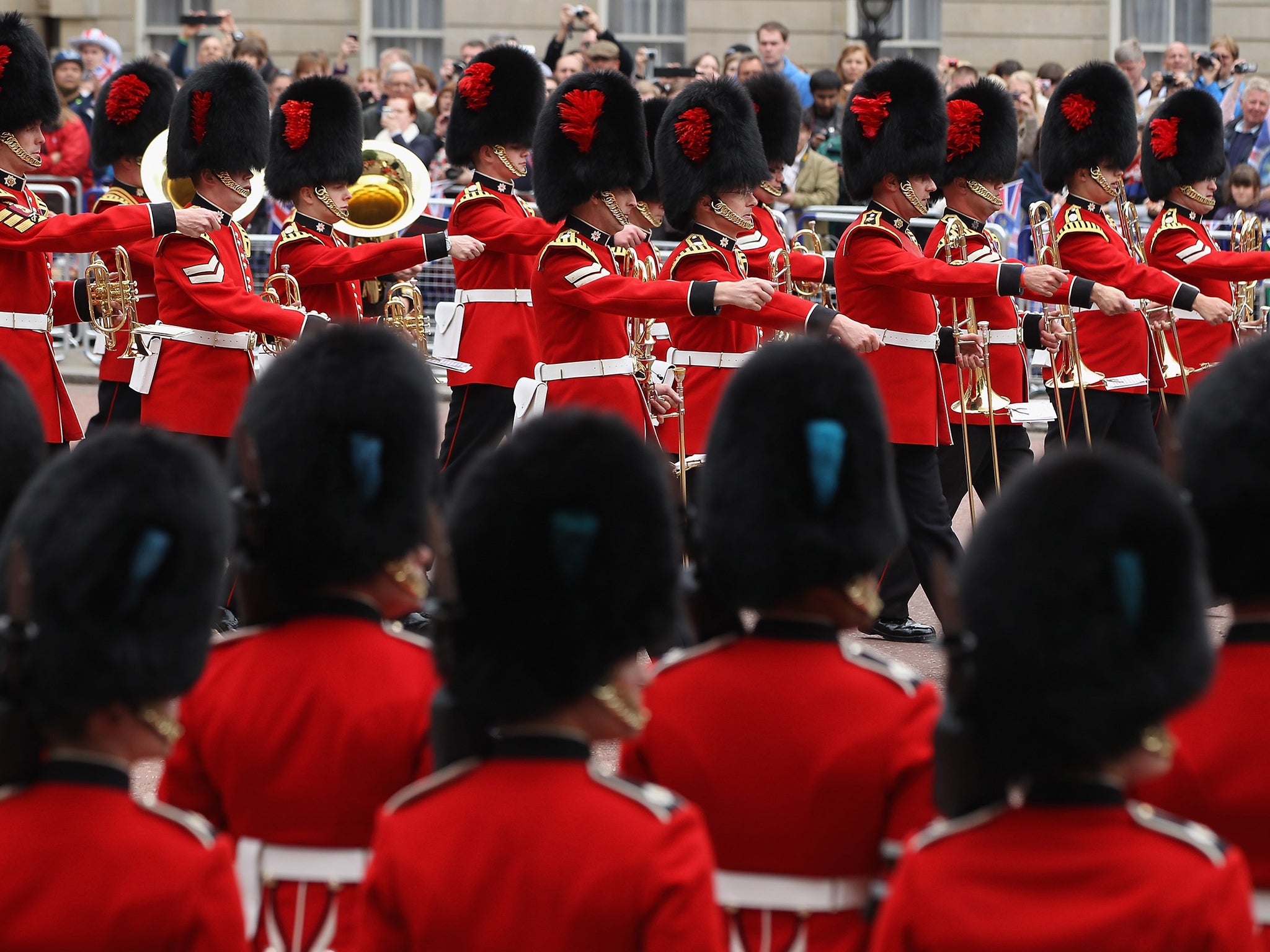Scottish independence: 'This country is famous for what we achieved together not apart'

There can be fewer more potent symbols of Britain’s imperial pomp than the troops of the Coldstream Guards in their scarlet tunics.
Cross the Tweed from Northumbria into Scotland and you will arrive at the home of the fabled regiment – part of the original New Model Army which went on to serve with distinction from Waterloo to Helmand Province.
Perhaps it is the military connection or maybe it is the practicalities of life on a historic and much fought-over frontier but support for independence appears decidedly lukewarm in this rich farmland with its patchwork of ploughed fields, mossy bridges and stone houses.
Proud To Be Scots Vote No says a giant banner next to the Old Marriage House which once hosted runaway couples from England seeking hasty nuptials.
There is much uncertainty here. “Is the border at Lamberton about to become an international frontier?” ponders the latest edition of the Berwickshire News.
Trevor Brunning, 50, a former mounted gunner in the Royal Horse Artillery who now runs the vintage military surplus shop Walk This Way Surplus, has lived in Scotland for the past 11 years.
Scottish independence: What will happen to key British institutions?
Show all 7“Most small businesses don’t want to go into something without knowing what’s going to happen. I was willing to listen to what was being said but whenever Alex Salmond was questioned by people who move in larger circles than me the answers were not forthcoming.
“It is a big gamble and regardless of politics it is a great shame to split up the union after 300 years. Military men have walked out under the same flag for centuries. We need more unity. This country is famous for what we achieved together not apart,” he added.
“The border is a very artificial concept for us here. Our community straddles both sides but a Yes vote could make that a real and very tangible barrier,” he said.
“From a practical perspective businesses which operate across borders do not want to contend with two different tax regimes, two different health and safety systems or two different payrolls,” he added.
Mr Lamont said he had canvassed 2,000-3,000 doors in recent weeks and there appeared to be strong support for the union – although they all needed to make their opinion heard to ensure victory despite a recent poll by ITV Border which put the No campaign at 68 per cent.
People were concerned about the impact independence would have on cross-border health arrangements with many Scots currently nipping into England for treatment.
“The interesting thing with the polls getting closer is that it has become very clear that if you want a No vote you will have to vote No. You can’t afford the luxury of not voting or voting Yes as a protest against politicians. But despite my concerns about the outcome the really positive thing has been the extraordinary level of engagement so far,” he said.
Many people split their lives between the two countries. Lee Borthwick, 33, a mobile tattooist from Kelso, was returning from Alnwick where he had been visiting his son. “If they do win and get independence I think you will give them a year or two then they will want to come back and join the union,” he said.
In Berwick on the English side of the border there is also concern. Stephen Hope, 33, runs the The Sporran gift shop. Born in Edinburgh, he was brought up in England, although he still supports his birth country when they play his adopted home at football.
“Maybe there is a bit of resentment over the years,” he said. “But if I was getting a vote it would be No but that is because I grew up over the Border. Independence could hurt. There are a lot of people who come down on holiday. If a border went up that could really affect the tourist trade,” he said.
Cathie Tinn, 52, was out shopping in Berwick. She is English but lives three miles across the border in Scotland. “I just don’t believe Scotland has enough money to do things like the health service, the police or its own armed forces. He hasn’t even thought about the currency. I think in the Borders there are a lot more people worried about what is going to happen,” she said.
John Marshall, 68, known as the Flowerman for his trademark floral dress, has been selling “anything that is legal” at Berwick market for nearly six decades including half price Jimmy Wigs. He said many were confused over whether they might one day need a passport to cross between Scotland and England.
“I have listened to the debates. There is a minority of people pushing for power and money. Their politicians are as cynical as ours – especially when they stoop to giving 16-year-olds the vote. They are clearly up to something,” he said
“We say here that he is called Salmond and she is called Sturgeon – there has got to be something fishy going on.”
Subscribe to Independent Premium to bookmark this article
Want to bookmark your favourite articles and stories to read or reference later? Start your Independent Premium subscription today.

Join our commenting forum
Join thought-provoking conversations, follow other Independent readers and see their replies